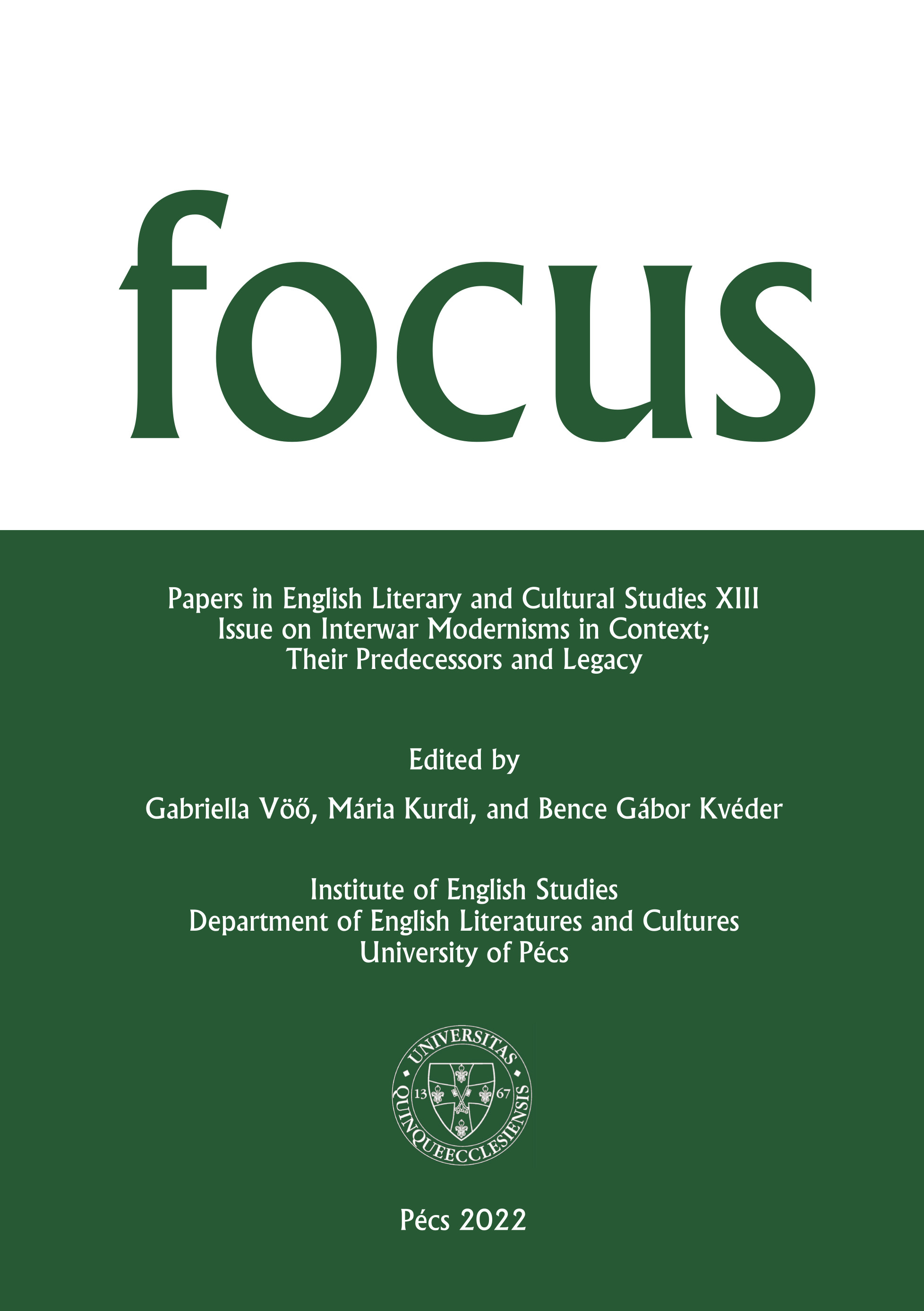“Tinkers” in Verse: The Dublin Gate Theatre’s Production of Donagh MacDonagh’s God’s Gentry (1951)
DOI:
https://doi.org/10.15170/Focus.13.2022.1.67-78Abstract
In his ballad opera God’s Gentry, produced in 1951 at the Dublin Gate Theatre under the direction of Hilton Edwards, Donagh MacDonagh set out to satirize totalitarian regimes and the welfare state by making the “class” of the tinkers the rulers of Ireland for a year, led by Marks (“Marx”) Mongan and aided by the old Irish god Balor of the Evil Eye. Written in verse and interspersed with popular folk tunes to which MacDonagh wrote new lyrics, the play imagines the tinkers’ outlook on life as the antithesis of capitalism, law and order, and Christian family values. Nora, the village shopkeeper’s daughter, is seduced by the free and merry ways of Marks and his people, but when the nation is declared bankrupt and the pagan, socialist “tinker’s republic” collapses, her jilting of Marks and her return to settled life signal a more general reversal of the nation to bourgeois values. This essay considers the way in which Travelling people are represented in the text and on the stage both as metaphorical stand-ins for politicians governing Ireland and nations beyond its borders and as an actual Irish minority perceived as an unregulated and transgressive entity—a “nation within a nation”—by the settled population. The article also considers how the life of the Travellers was imagined aesthetically in what MacDonagh referred to as the “grand” settings and costumes designed for the Gate production by Micheál Mac Liammóir, who also played the part of Marks.
Downloads
Published
How to Cite
Issue
Section
License

This work is licensed under a Creative Commons Attribution-NonCommercial-NoDerivatives 4.0 International License.
FOCUS: Papers in English Literary and Cultural Studies follows the principles laid down by Creative Commons, which provides guarantees for the Author’s copyright while also ensuring that intellectual properties are made available for the wider public in a digital form. All papers submitted to the journal apply the following licence conditions (indicated on the journal’s website as well as in individual publications):
“© This work is licensed under a Creative Commons Attribution-NonCommercial-NoDerivatives 4.0 International License.”
You are free to:
- Share, copy and redistribute the material included in the journal in any medium or format under the following terms:
- Attribution — You must give appropriate credit to the Author, and indicate the original place of publication [FOCUS: Papers in English Literary and Cultural Studies, Issue nr., page numbers.].
- NonCommercial — You may not use the material for commercial purposes.
- NoDerivatives — You are not allowed to remix, transform, or build upon the material.
- The above conditions must always be indicated if the journal material is distributed in any form.
- The above conditions must always be met, unless a written permission signed by the Author and the Editor-in-Chief states otherwise.

